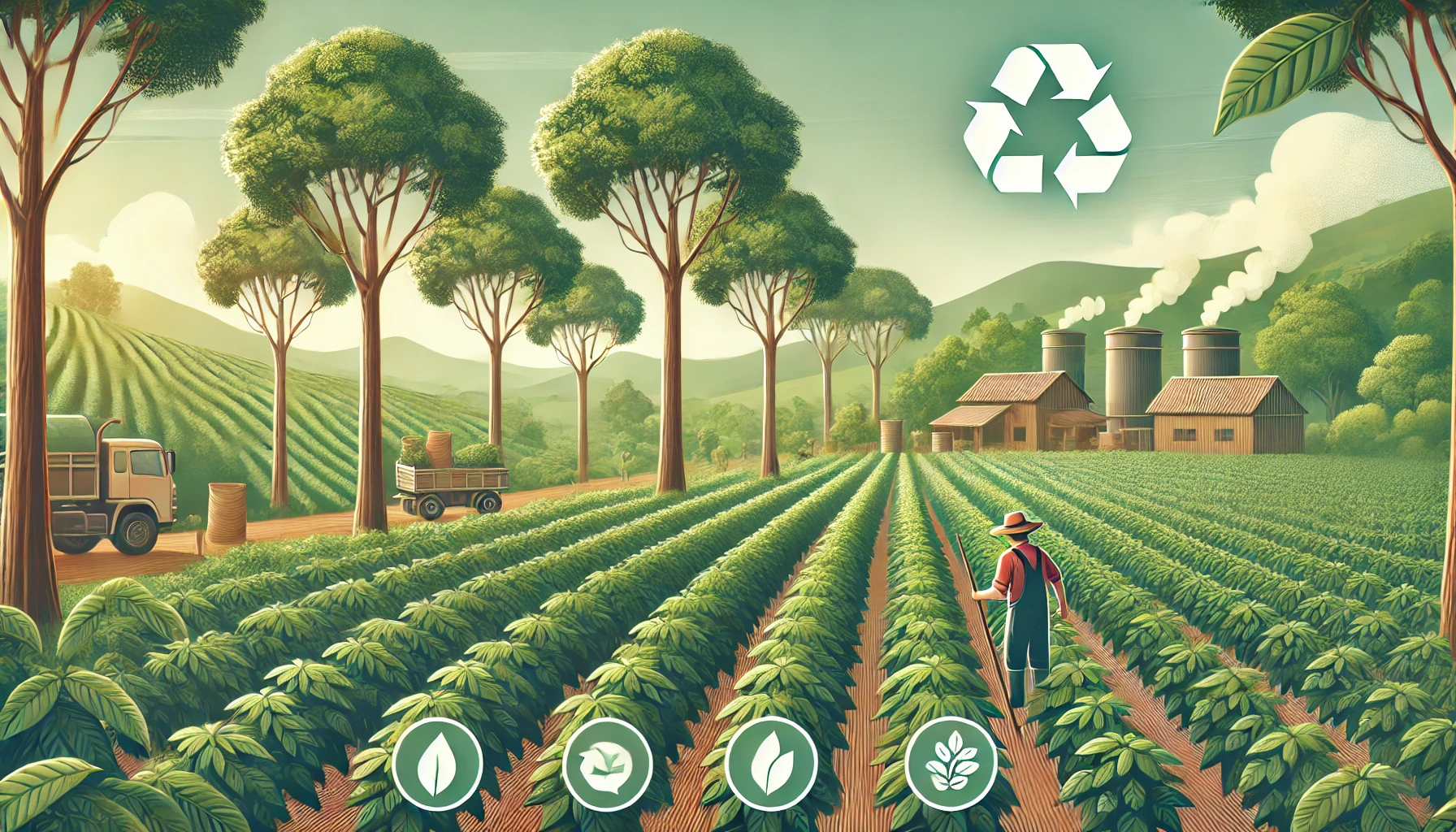The coffee industry is a massive global enterprise, but it comes with significant environmental and social challenges. From deforestation to fair wages for farmers, sustainability in coffee production has become a critical concern. In this article, we’ll explore the importance of sustainability in the coffee industry, how it impacts the environment, and what consumers can do to support more sustainable coffee practices.
Why Sustainability in Coffee Matters
Coffee is one of the world’s most popular beverages, but its production can have a major environmental footprint. The coffee supply chain—from farming to packaging—affects everything from the land and water to social issues like workers’ rights and fair wages.
A sustainable coffee industry not only helps protect the planet but also ensures that coffee farmers are treated fairly and can continue growing coffee for generations.
The Environmental Impact of Coffee Production
1. Deforestation and Land Use
In many parts of the world, coffee is grown in tropical areas, which are often home to rainforests. As demand for coffee increases, there’s growing pressure to clear land for farming. This leads to deforestation, which contributes to biodiversity loss and worsens climate change.
Coffee farms that practice shade-grown coffee can help preserve forests by allowing coffee plants to grow under the canopy of trees, maintaining natural habitats for wildlife.
2. Water Consumption and Pollution
Coffee farming requires a lot of water, and in some areas, it places a strain on local water resources. In addition, coffee processing methods can pollute nearby water supplies, especially when wastewater is improperly managed.
Sustainable coffee farming methods involve water management practices, like using water more efficiently, recycling water, and avoiding the use of harmful chemicals.
3. Carbon Emissions
Coffee production contributes to greenhouse gas emissions at various stages, including transportation, processing, and packaging. The carbon footprint of coffee can vary depending on how it is grown and processed, as well as how it is shipped globally.
Farmers are adopting more eco-friendly practices, such as using organic fertilizers and transitioning to carbon-neutral processing techniques to reduce their environmental impact.
Social Sustainability: Fair Trade and Worker Rights
The coffee industry also has a significant social impact. Many coffee farmers live in developing countries where they face low wages, difficult working conditions, and limited access to resources.
Fair Trade Coffee
Fair trade certification aims to ensure that coffee farmers receive a fair price for their beans, helping them to cover the costs of production and make a living wage. In addition to fair wages, fair trade coffee often guarantees that farmers work in safe conditions and have access to education and healthcare.
Fair trade certification also encourages farmers to use sustainable farming practices, reducing environmental damage while improving their livelihoods.
Worker Rights and Community Development
In many coffee-producing regions, workers can face poor labor conditions, including low pay and lack of workers’ rights protections. Sustainable coffee brands are increasingly committed to ensuring ethical treatment of workers by supporting labor unions, promoting fair wages, and providing better working conditions for those involved in coffee production.
Sustainable Coffee Practices
1. Organic Coffee Farming
Organic coffee farming avoids the use of synthetic pesticides, fertilizers, and herbicides. Instead, farmers use natural fertilizers, composting, and crop rotation to maintain soil health and protect the environment. Organic farming also helps preserve biodiversity by avoiding harmful chemicals that can affect both plants and wildlife.
2. Shade-Grown Coffee
Shade-grown coffee involves cultivating coffee under the natural canopy of trees, which provides a habitat for wildlife and prevents deforestation. This method helps preserve biodiversity and reduces the need for chemical pesticides, as the shade creates a more balanced ecosystem.
3. Direct Trade Coffee
Direct trade is a model where coffee roasters buy coffee directly from farmers, cutting out middlemen and ensuring that farmers receive a fair price for their beans. This model also allows roasters to work closely with farmers to help improve quality, sustainability, and overall farm conditions.
4. Sustainable Packaging
The packaging of coffee also has an environmental impact, especially when it involves non-recyclable materials. Many coffee brands are now adopting sustainable packaging, such as biodegradable bags, compostable capsules, and recyclable packaging.
How Consumers Can Support Sustainability in the Coffee Industry
As coffee lovers, we can make a difference by making conscious choices that support sustainability in the coffee industry. Here’s how:
1. Choose Certified Sustainable Coffee
Look for certifications like Fair Trade, Organic, or Rainforest Alliance when buying coffee. These labels ensure that the coffee you’re purchasing has been produced with ethical labor practices and sustainable farming methods.
2. Support Local and Direct Trade Coffee Roasters
Look for small-batch roasters that prioritize direct trade relationships with coffee farmers. This helps ensure that the coffee is ethically sourced and that farmers receive fair compensation for their beans.
3. Reduce Waste
If you’re using single-use coffee pods, consider switching to reusable pods or brewing methods like pour-over or French press to reduce waste. You can also recycle your coffee packaging if possible.
4. Drink Less Coffee from Single-Origin, Deforestation-Impacted Regions
Certain regions, like parts of Central and South America, have been affected by coffee-related deforestation. Try to avoid coffee sourced from regions where the environmental impact is high. Instead, seek out shade-grown or regenerative agriculture-produced coffee from regions that prioritize environmental health.
Conclusion: A Sustainable Future for Coffee
Sustainability in the coffee industry is about more than just growing great coffee—it’s about protecting the environment, supporting the well-being of farmers and workers, and ensuring that future generations can enjoy coffee. By making thoughtful choices and supporting brands that prioritize sustainability, you can be part of the solution.
So, the next time you brew your cup of coffee, consider where it came from and how it was produced—and make a conscious decision to support a more sustainable coffee industry.
